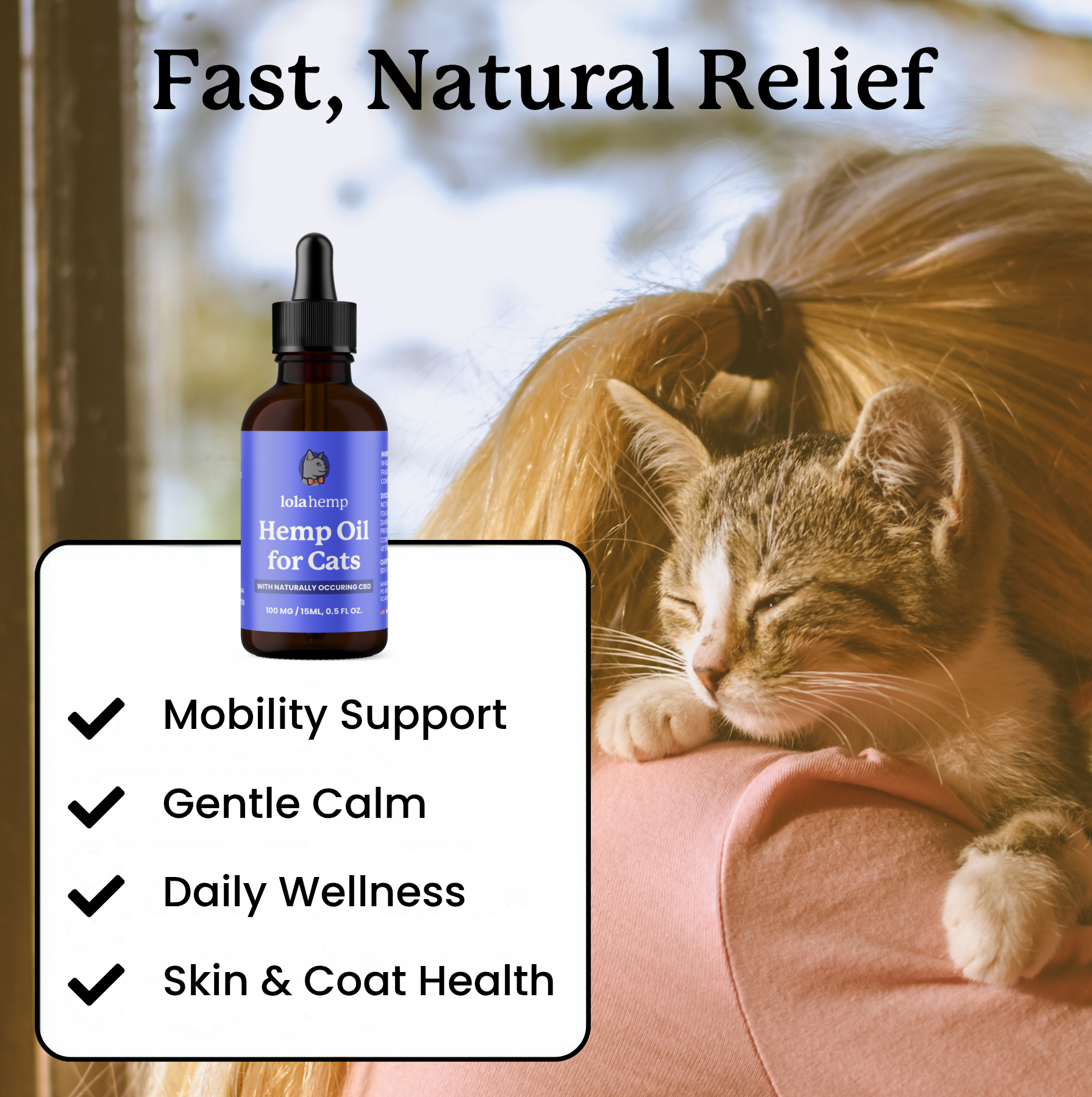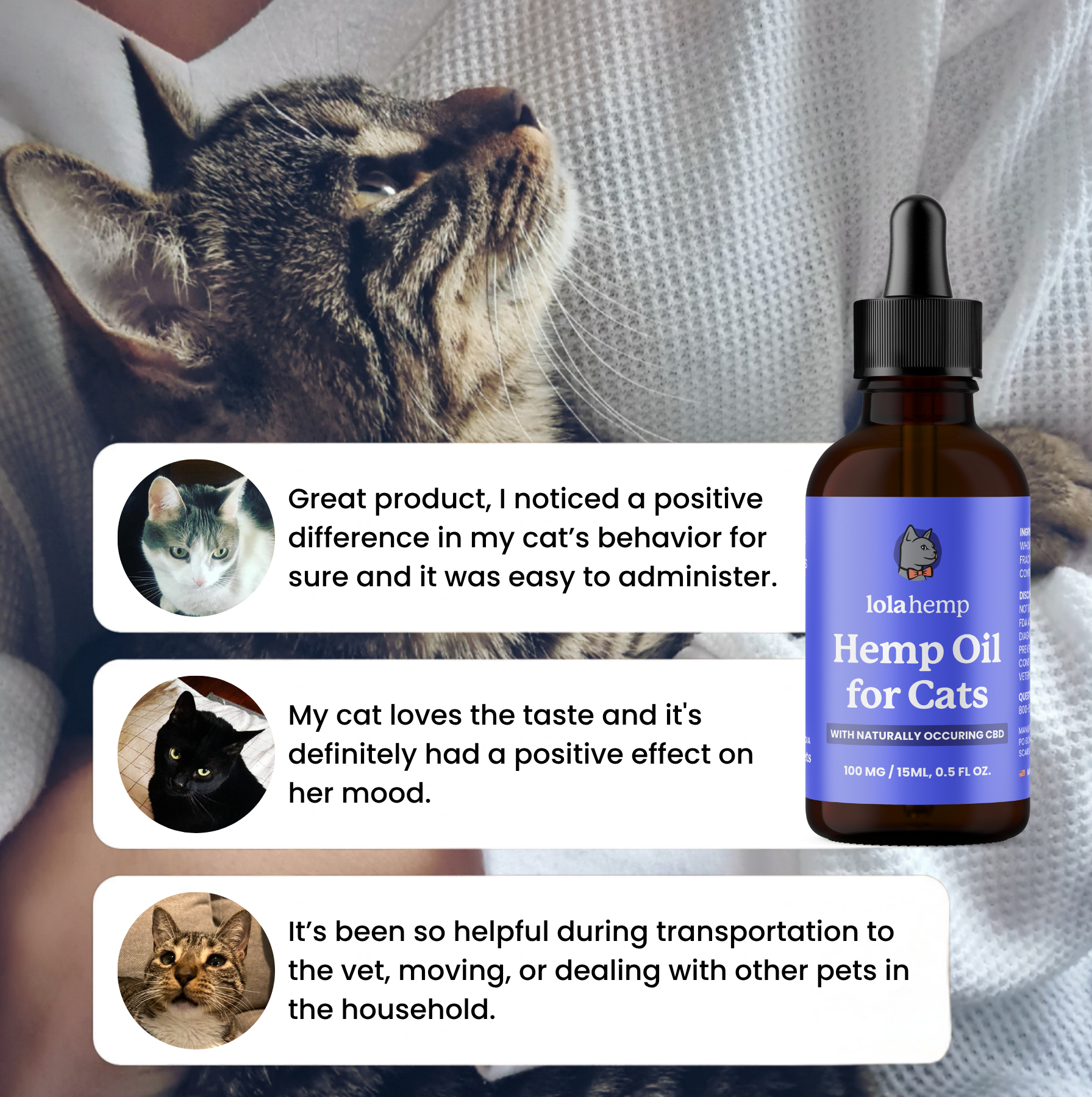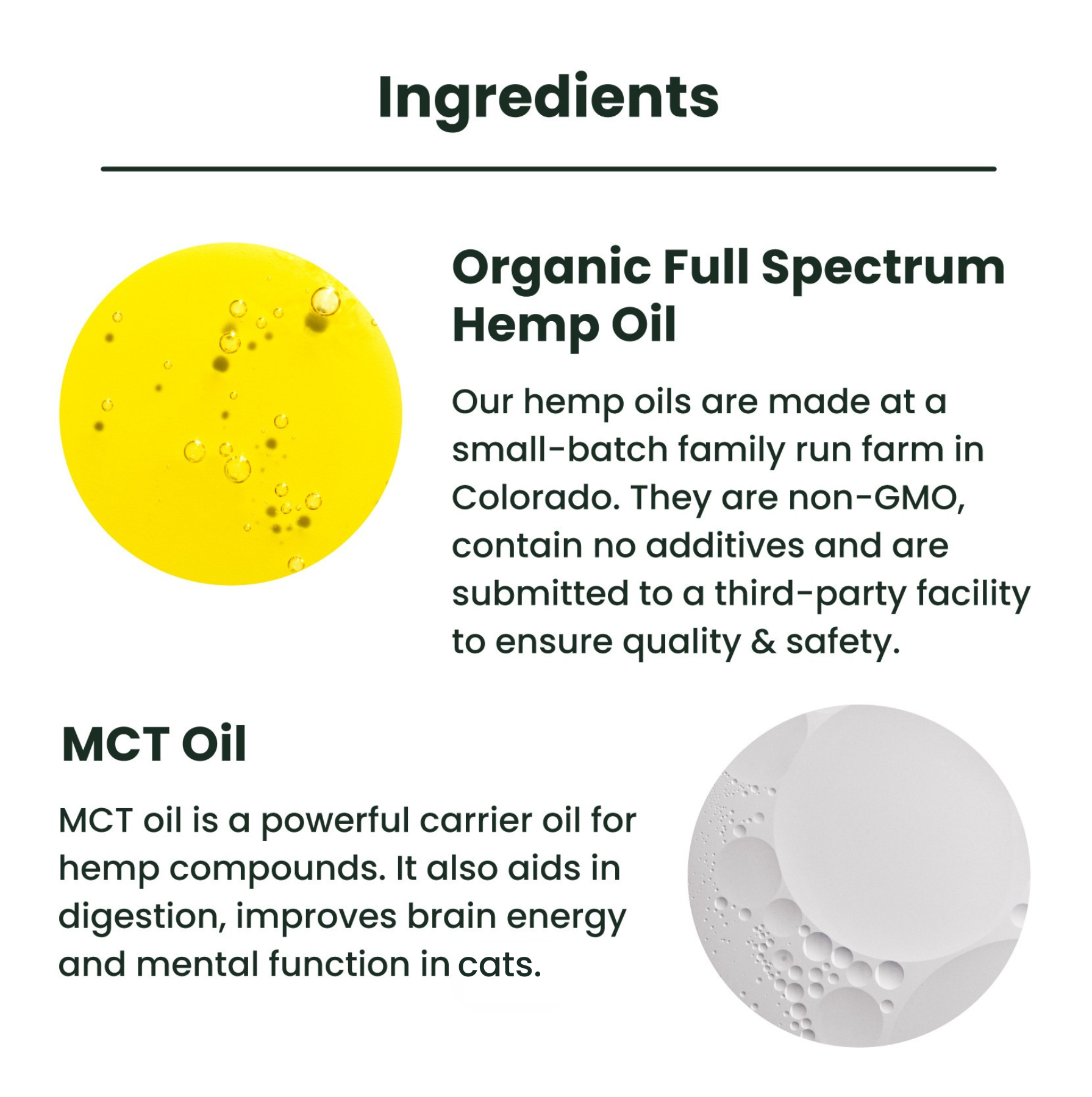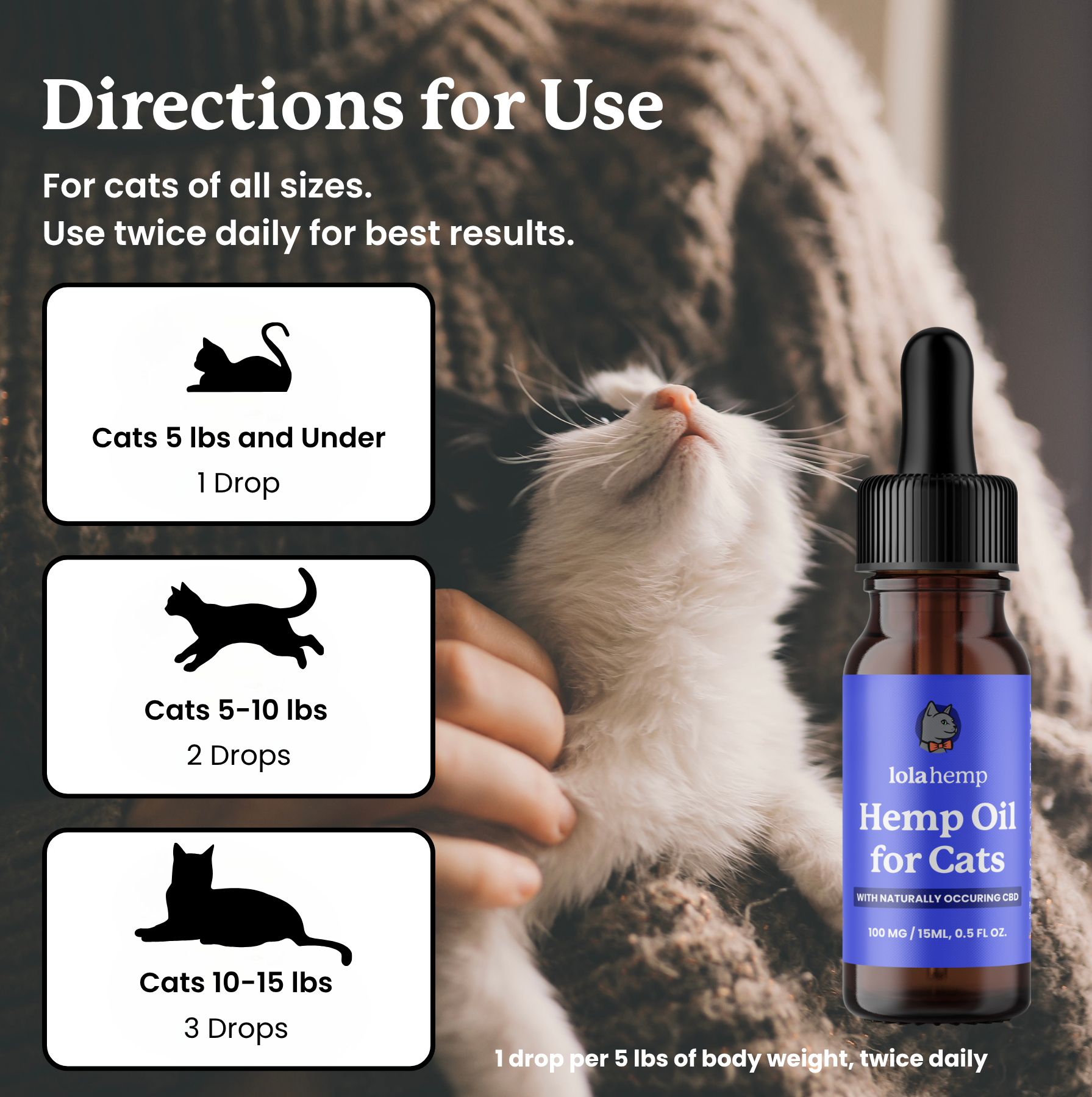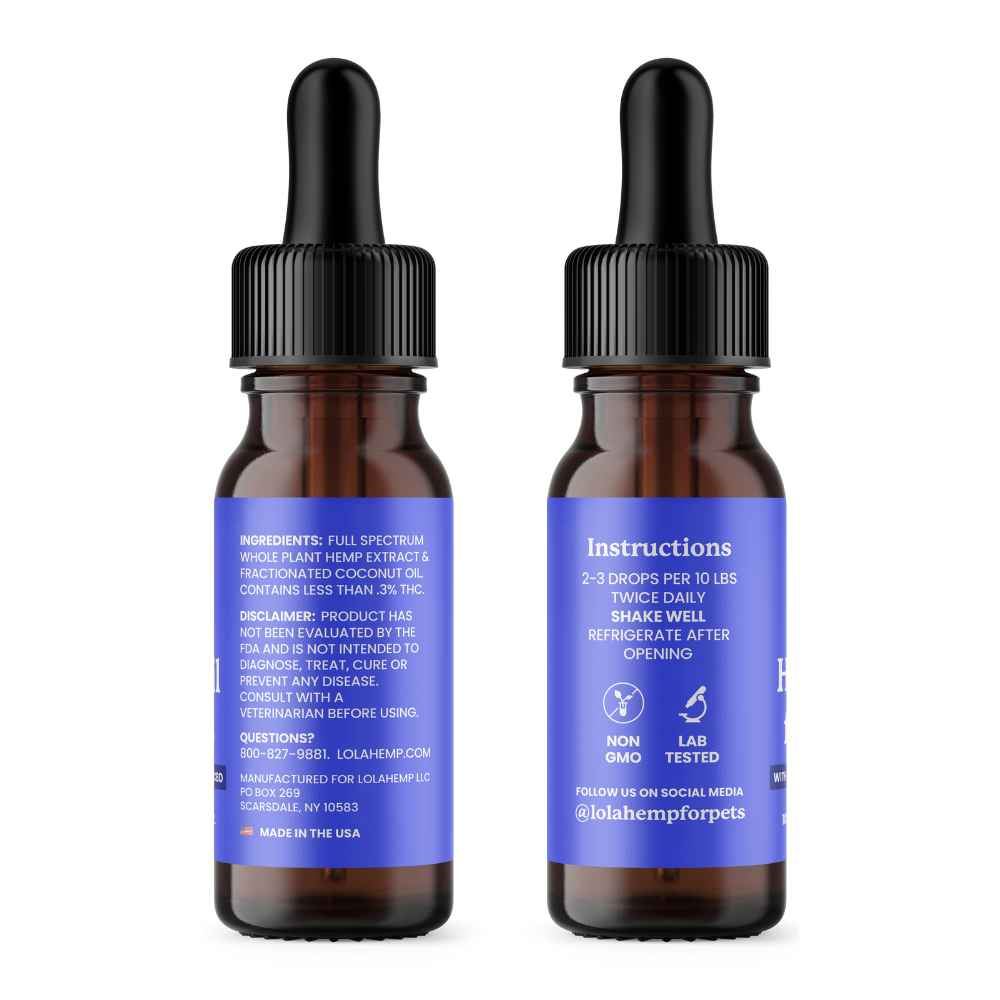Constipation is the infrequent or difficult passage of dry, hard feces. It is a common problem in cats, particularly middle-aged cats, although any breed, age, or sex can develop constipation at any time. It is important to understand the underlying causes of this condition and know the signs and symptoms so you can intervene quickly when constipation occurs.
Constipation, just like diarrhea in cats, can be dangerous and needs to be addressed quickly!
4 Home Remedies for Cat Constipation
While severe constipation requires veterinary care, mild cases may improve with simple home remedies. Here are four safe and natural ways to help relieve your cat’s constipation:
1. Increase Hydration
Dehydration is a common cause of constipation in cats. Ensure your cat has access to fresh water at all times, and consider adding a pet water fountain to encourage drinking. Wet food can also help increase moisture intake, as it contains significantly more water than dry kibble.
2. Add Fiber to Their Diet
A small amount of fiber can help regulate digestion. Canned pumpkin (pure, unsweetened) is a popular option, but psyllium husk or unflavored, plain Metamucil can also provide gentle relief. Start with a small amount—around ¼ to ½ teaspoon mixed into food—and monitor your cat’s response.
3. Encourage Physical Activity
Regular exercise helps stimulate digestion and prevent constipation. Encourage your cat to play with interactive toys, chase a laser pointer, or climb cat trees to keep their body moving. Even short bursts of activity throughout the day can support healthy bowel movements.
4. Use Hairball Remedies or Natural Lubricants
If your cat is prone to hairballs, hairball gels or petroleum-free lubricants may help ease digestion and promote smoother bowel movements. Some cat-friendly oils, like a small amount of coconut or olive oil, can also act as a mild laxative when mixed into their food.
When to See a Vet
If your cat hasn’t had a bowel movement in over 48 hours, is straining without success, or seems lethargic, seek veterinary care immediately. Chronic constipation can lead to serious complications, so it’s always best to address concerns early.
What Causes Cat Constipation?
Cat constipation can occur due to many different underlying causes and illnesses.
Common causes of cat constipation include:
- Pain
- Dehydration
- Obesity
- Lack of exercise
- Anxiety
- Arthritis
- Poor litter box management
- Electrolyte imbalances
- Endocrinopathies such as diabetes or hyperthyroidism
- Neuromuscular dysfunction
- Excessive grooming and ingestion of hair
- Obstruction of the rectum
- Diseases of the pelvis or rectum
Because so many underlying conditions can cause constipation, it is important to have your cat seen by a veterinarian to diagnose constipation and to address any concurrent illnesses or manage issues that may be contributing to the problem.
What are The Signs of Constipation in Cats?
One of the first symptoms pet owners notice is straining in the litter box. This is a symptom pet owners must pay very close attention to because straining to urinate and straining to defecate can look very similar. Straining to urinate is an emergency situation and must be addressed by a veterinarian immediately.
If your cat is straining in the litter box and you are not 100% certain that your cat is urinating normally, take your cat to the veterinarian right away.
In addition to straining to defecate, your cat may vocalize while in the litter box. Constipated cats will often repeatedly attempt to defecate without passing any cat stool or will pass only small, hard bowel movements. Cats with chronic, long-term constipation may pass a small amount of watery diarrhea around the constipated feces. They may also suffer from dehydration, loss of appetite, vomiting, and weight loss.

How is Cat Constipation Treated?
Mild cases of constipation can be treated with oral medications and dietary changes. Moderate to severe cases of constipation, however, must first be addressed with an enema to soften the impacted feces so your cat can pass it. Never try to perform an enema on your cat at home – you may seriously hurt your cat, and many human enema products can be toxic for cats. This procedure should only be performed by your veterinarian.
Preventative Measures
Once your cat has started defecating again, your veterinarian may prescribe medications to help prevent future episodes of constipation. These may include medications to soften the stool, pro-kinetic drugs to increase motility of the colon, and medications to manage nausea which can occur secondary to constipation.
Some cats also respond well to fiber supplements, while others do best with a low-fiber diets. Some trial and error may be needed to find the best combination of diet and medication for your cat’s needs.
Manage Hydration
Keeping your cat hydrated is also an important factor in preventing future episodes of constipation. Switching to a canned food diet instead of dry food can help, as can adding water to your cat’s food to increase his or her moisture intake.
Adding water bowls of various shapes and sizes throughout your house can encourage water intake. Some cats love water fountains or a dripping faucet and will drink more if this is provided to them.
You can also add a bit of tuna juice or low sodium chicken broth to your cat’s water to encourage him or her to drink more.

Managing Cat Constipation Long Term
Unfortunately, cats that experience a constipation episode are more likely to become constipated again in the future, especially if the underlying cause of the constipation is not managed. The good news is that there are steps you can take at home to address constipation and prevent future episodes.
Preventing dehydration is one of the key steps in combating feline constipation issues. Switching your cat to a canned diet can help increase moisture intake and improve hydration. You can also encourage your cat to drink more water by using a water fountain, adding more water bowls throughout your home, leaving a faucet dripping, or flavoring your cat’s water with a bit of tuna juice or low sodium chicken broth.
The increased hydration will help feces pass more easily, reducing constipation and straining.

Monitor Their Litter Boxes
Managing your cat’s litter box is another factor you’ll need to consider when it comes to preventing cat constipation. If your cat doesn’t like the litter box, he may hold his urine and feces for as long as possible to avoid using it, and this can lead to constipation. Similarly, if your cat is being bullied away from the litter box by another cat, this can also lead to problems.
Your household should have one litter box per cat, plus one extra. The litter boxes should be in separate locations and should be easily accessible for your cat. Most cats prefer an unscented clumping clay cat litter and an uncovered box. The boxes should be cleaned at least once a day. Remember, your cat has to walk into the bathroom with his bare feet – so make sure it is clean!
Frequently Asked Questions About Cat Constipation
What home remedies can help relieve cat constipation?
The article lists four home remedies: increasing hydration, adding fiber, encouraging physical activity, and using hairball remedies or natural lubricants.
When should I take my constipated cat to the vet?
You should seek veterinary care if your cat hasn’t defecated in over 48 hours, is straining without success, or seems lethargic.
What are common causes of cat constipation?
Causes include dehydration, obesity, pain, anxiety, lack of exercise, hair ingestion, endocrine diseases, electrolyte imbalances, and litter box issues.
What are signs that my cat may be constipated?
Straining in the litter box, vocalizing, passing small hard stools, dehydration, loss of appetite, vomiting, and weight loss are key signs.
How is cat constipation treated by a veterinarian?
Treatment may include enemas, medications to soften stool, pro-kinetic drugs, nausea medications, hydration support, or dietary adjustments.
How can I prevent constipation in my cat?
Preventive steps include increased hydration, switching to canned food, maintaining clean litter boxes, and monitoring for underlying health conditions.


